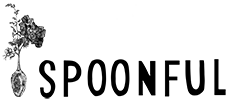Therapeutic Herbalism Community Course
Thursdays from 5:00 - 7:00 pm, starting on February 6, 2025.
20 hours total of live virtual instruction with activities and readings in between to support learning.
Join clinical herbalist, national board certified health and wellness coach, and Vermont State College/University of Vermont faculty member, Katherine Elmer, for an evidence-based, simplified scientific exploration of herbal and nutritional strategies to support our bodies.
Therapeutic Herbalism focuses on the application of specific plant remedies for supporting specific body systems for optimum function and the prevention of disease(including the heart, liver, brain, skin, GI tract, etc.), safe and effective dosing, and phytochemistry basics.
This course also uses an intersectional, critical theory approach to speaking about bodies and healing, acknowledging that western medicine often perpetuates colonial and white supremacist ways of knowing and being.
Participants will have an opportunity to sample the herbs (through an optional pre-ordered home sample kit). Class kits are available through our herbal web boutique for local pick-up. If you would prefer to have it shipped - email us for more information (info@spoonfulherbals.org). Pre-orders need to be made by February 1st.
Check out the Therapeutic Herbalism: Medicine Tasting Shopping List for additional, optional items that are designed to support your learning as herbal medicine is best experienced THROUGH the body and the senses. For your convenience, you may purchase them through our Spoonful Herbals webstore or at an apothecary or natural food store of your choice.
There will be light reading, study questions, and online discussion between classes.
Scroll down to get an example Intro class for Free!
Details:
Thursdays from 5:00 - 7:00 pm* starting on February 6th through ZOOM; live/synchronous attendance encouraged but sessions will be recorded for later viewing.
*We will not meet the weeks of Vermont Public School Breaks (last weeks in February and April).
10 two hour weekly online sessions
Cost: $550 ($350 for students, BIPOC, LGBTQ2S and senior citizens). Capacity is limited; $50 non-refundable deposit required; financial assistance available for eligible students while funds last through VSAC’s Vermont Non-Degree Grant. (Inquire at VSAC.org, while funds last, it is best to apply before January 1st.)
Application for the 2025 Therapeutic Herbalism Community Course have closed.
“Thanks to both classes I have grown and learned a lot as an herbalist this past year. They complement each other well. Therapeutic Herbalism is a more traditional academic class which really appealed to my scientific side. The Apprenticeship on the other hand takes a hands on approach.”
“I took Katherine’s Plant-Based Healing Course at the University of Vermont. I felt that I learned more about human functioning and health-care in that class than in most of my public health or nutrition courses at UVM. Also, I really enjoy the mindful approach taken in Katherine’s teaching style, including the emphasis on the honorable harvest and practices of gratitude.
I have found this to personally influence my way of being in the world in a way that feels more in line with how I want to interact with the environment and other beings around me.”
Course Outline:
These are the topics for course meetings with assigned readings and study questions in between. Textbooks (also available for purchase at Railyard Apothecary) are Body into Balance by Maria Groves and Holistic Anatomy by Pip Waller. A shopping list for optional “class samples” will be provided in advance.
Introduction to Modern Herbalism and Food as Medicine
Basic Phytochemistry and Herbal Preparations
Foundations for Health and Resilience
Managing Pain and Inflammation
Healthy Digestion, Elimination and Detoxification
Healthy Hearts
Nourishing the Brain and Central Nervous System
Supporting Immunity
Skin, Bones and Connective Tissue
Review, Integration and Herbal Safety Considerations

